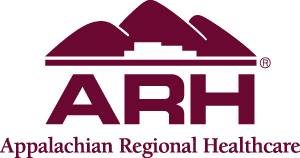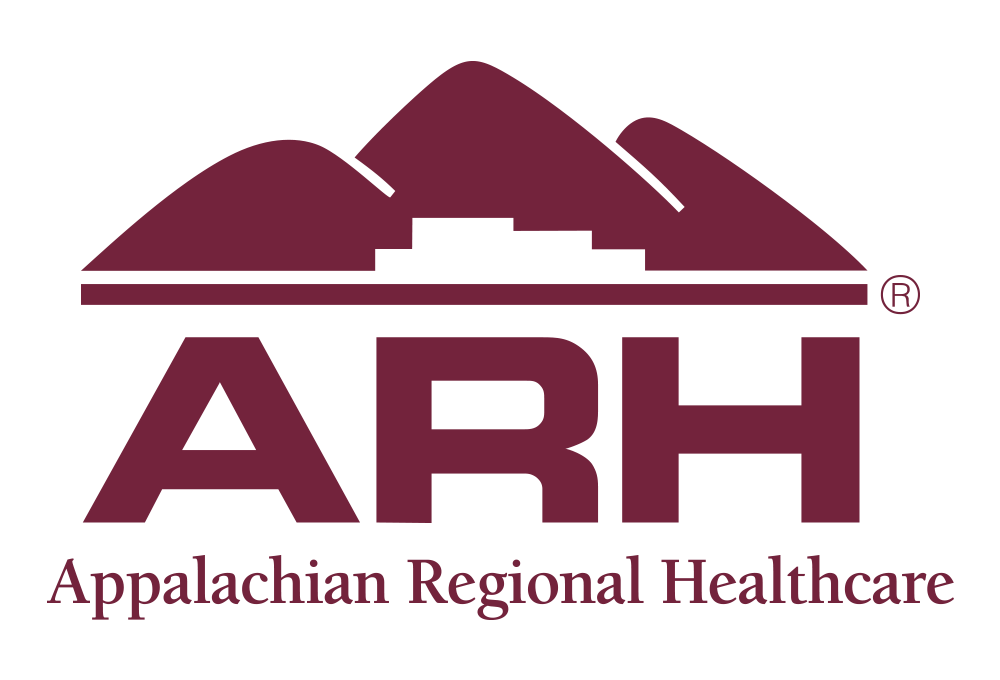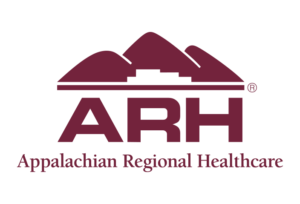
NEWS RELEASE – March 10, 2023
Appreciating The Journey
March 10, 2023 –
It might be difficult to imagine now, but Dr. Chad Knight, a surgeon at Tug Valley ARH Regional Medical Center, had no plans of attending college when he graduated from high school in his native Hazard, Ky.
“I didn’t even think about it,” he says. “I went to vo-tech and got a certificate to be an electrician and said, ‘I’ll just be happy doing this.’”
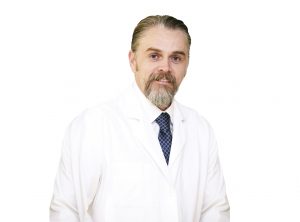 And he was happy, too, as his early career took him from construction laborer to tree trimmer and then to work as a journeyman lineman. But when his company started sending him on the road for work, he knew he had to make a change.
And he was happy, too, as his early career took him from construction laborer to tree trimmer and then to work as a journeyman lineman. But when his company started sending him on the road for work, he knew he had to make a change.
“It seemed like the contracts got further and further away,” Dr. Knight recalls. “I was only home maybe two days a week, and when one of the babies got sick and my wife couldn’t get hold of me, I gave two weeks’ notice and came home.”
Though confident with his decision to put his family first, he also knew the $6 an hour he was earning at a local body shop wasn’t going to cut it.
It took a sign – a literal sign advertising classes at Hazard Community & Technical College – for him to realize his next step.
“It said, ‘Take your ACT,’ so I stopped in, registered, took my ACT and some courses,” he says.
Though college wasn’t the original plan, Dr. Knight said he’d always been good in school.
“I was what they called the ‘smart kid,’” he says with a laugh, explaining he helped his brother with his high school classes while he was still in elementary school.
That might be why his anatomy and physiology instructor suggested he consider a career in healthcare.
Dr. Knight started with prerequisites in Hazard before enrolling at Transylvania University in Lexington, Ky., where he graduated with a bachelor’s degree in anthropology and a minor in biology.
Finally, in the fall of 2008, at 33 years old, he enrolled in medical school at the University of Kentucky.
“I guess you could say I was a late bloomer,” he says with a laugh.
Dr. Knight spends his days either in surgery or talking to patients about surgery.
But just like med school itself, surgery wasn’t in his original plan.
“I was going to be the family doctor who did it all,” he says. “I remember sitting around listening to the old timers talk and they would complain they went to this doctor who couldn’t do this and to this doctor who couldn’t do that and they always needed to see someone else.
“I said, ‘I’m going to be the person they could come see and anything they need, I can take care of it.’”
That changed, however, when he started clinicals.
“I hated family medicine,” Dr. Knight admits with a laugh. “I remember going home and telling my wife, ‘If something don’t give, this is not going to work.’”
It wasn’t that he didn’t see the importance of family medicine. He just needed something a bit more structured.
Dr. Knight found the solution – and his path – during his final rotation.
“In surgery, you see a patient with a bad gallbladder, you take it out and they feel better,” he says. “You do a colonoscopy and if you find cancer, you take them to the operating room. You take out the cancer and the associated lymph nodes and you’ve treated their cancer.
“Surgery is more hands-on, and a bit more structured and goal oriented,” he continues. “I said, ‘This is what I wanna do. I can be happy doing this.’”
Dr. Knight completed his surgical residency at Marshall University. From there, he again returned to his roots where he went to work at Hazard ARH Regional Medical Center.
He enjoyed being back home, but soon found himself setting up residence in the hospital rather than at his own house.
“Within six months, I was at the hospital pretty much 24/7,” he says.
It wasn’t a forced workload, but rather by choice.
“There were five surgeons but they (patients) were my people,” he says, explaining he found it difficult to turn down requests from people who wanted surgery from a familiar face. “I couldn’t say no.”
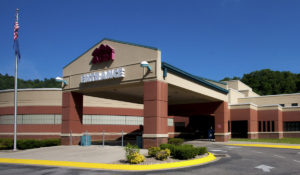 Though his wife and even nurses at the hospital told him they worried about the strain of his workload, it wasn’t until his youngest son had a medical scare that he realized he needed a change.
Though his wife and even nurses at the hospital told him they worried about the strain of his workload, it wasn’t until his youngest son had a medical scare that he realized he needed a change.
“I told my wife, ‘No matter how this works out, I’m going to slow down,’” he recalls.
Dr. Knight stayed true to his word and though his son was quickly cleared, he began looking for a new position.
“I knew there was an opening at the VA in Huntington for a general surgeon, so I called that weekend and said, ‘I want it.’”
Dr. Knight began work at the Hershel “Woody” Williams VA Medical Center in January 2020. Though serving as chief of surgery, he sometimes took call at Tug Valley ARH Regional Medical Center, about 90 minutes away in South Williamson, Ky.
It was during that time when Roy Milwee, Chief Ambulatory Officer for ARH, suggested he take a full-time position at the hospital.
“We went back and forth about it for a long time,” he says of conversations with Milwee, who told him of plans to grow the surgical staff at Tug Valley.
Dr. Knight says he was comfortable in his position at the VA, but decided to accept Milwee’s offer, joining the staff at Tug Valley in June 2022.
Though he now works full-time in Kentucky, the 48-year-old father of 8 and grandfather of 6 – 8 by the end of the year – still lives outside of Huntington, where he and his wife Amy own a fledgling farm.
“It’s not a bad drive,” he says of the commute.
But though it’s a commute he doesn’t mind, he says it’s one patients should never have to make.
“My patients are so happy to be able to come here and get their surgical needs taken care of as opposed to having to go to another hospital,” he says. “You should be able to say there’s a hospital 15 minutes from the house.
“People are tired of having a diagnosis that requires them to go to Lexington, Huntington or Pikeville to be treated. People want a hometown hospital.”
Dr. Knight offers the “gamut” of surgical services at Tug Valley ARH.
“I do everything from lumps and bumps to minor plastic surgery, gallbladder, hernia, colorectal cancer and issues of the esophagus and stomach,” he says of his role as one of the hospital’s three surgeons.
And he says he hopes to offer more options in the future.
“I think there are a lot of opportunities for growth,” he says. “That’s another one of the reasons I was interested in coming here because there’s a lot of room for growth and improvement.”
It’s rare to find Dr. Knight trimming a tree these days.
“I prefer to supervise now,” he says with a laugh.
And though he has no interest in returning to those early days as a tree cutter and lineman, he says he wouldn’t change a thing as each step led him to where he is today.
“I wouldn’t go back and do it any differently because those experiences are important,” he says. “Those experiences make you appreciate things a little bit more.”
###
Appalachian Regional Healthcare (ARH), is a not-for-profit health system operating 14 hospitals in Barbourville, Hazard, Harlan, Hyden, Martin, McDowell, Middlesboro, Paintsville, Prestonsburg, West Liberty, Whitesburg, and South Williamson in Kentucky and Beckley and Hinton in West Virginia, as well as multi-specialty physician practices, home health agencies, home medical equipment stores and retail pharmacies. ARH employs more than 6,500 people with an annual payroll and benefits of $330 million generated into our local economies. ARH also has a network of more than 600 active and courtesy medical staff members. ARH is the largest provider of care and the single largest employer in southeastern Kentucky and the third-largest private employer in southern West Virginia.
